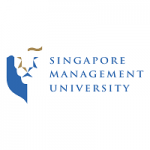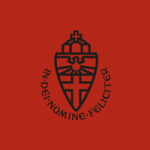项目介绍
OUR MISSION
To produce PhD graduates with expertise at the intersection of IT and business for R&D units and applied academic institutions. To establish SCIS as a distinct research and teaching school in Asia that attracts high-caliber professors, and influences academic research and industry practices.
OUR GOAL
To develop researchers/educators who address deep technology challenges in real information systems that impact business processes or management, or who develop tools and methodologies to translate business goals to technology solutions. Our PhD graduates will be capable of collaborating with faculty members from different research areas, designing technology solutions for real-world problems and applications, while still producing top-rate academic publications.
CURRICULUM COMPOSITION
This is a direct PhD programme, with a maximum candidature period of five (5) years and a minimum period of three (3) years for full-time students.
Our PhD students should identify a (preliminary) research area at the time of admission, so that they can begin research exploration right from the first year of candidature.
Graduate coursework:In the first two years of study, students will enroll in intensive courses to build their research depth and breadth, as well as professional skills:
| DEPTH REQUIREMENTS | BREADTH REQUIREMENTS | PROFESSIONAL SKILLS |
|---|---|---|
| Students will enroll in the advanced course in the primary area, and undertake research apprenticeship with their primary advisors. Each advanced course covers important research papers on key topics and techniques that students need to be acquainted with in order to carry out research in an area. An example of such a collection is the Readings in Information Retrieval, published by Morgan Kaufmann. | Students will attend courses in Cybersecurity, Data Science & Engineering, Information Systems & Management, Intelligent Systems & Optimization, Software & Cyber-Physical Systems. The breadth requirements are intended to help the PhD students establish their contact networks and to expose them to industry practices. In addition, students will attend the advanced course in one of the breadth areas, in consultation with their advisors. | To round up the PhD training, the curriculum includes workshops on English Communications; Information Systems Research Methodology; Intellectual Property Management; Research Writing and Presentation; and teaching skills. |
Curriculum Requirements
| TOTAL 40 COURSE UNITS (CUs) IN TOTAL | |||
|---|---|---|---|
| COURSEWORK (6 CUs) | EMPIRICAL RESEARCH PROJECTS – ERPs (4 CUs) | ADVANCED RESEARCH TOPICS – ARTs | DISSERTATION (28 CUs) |
| PHD IN INFORMATION SYSTEMS STUDENTS1 ISM course + Econometrics + 2 SCIS courses + 2 PhD courses in Economics / ECON682 Econometrics Analysis + 1PhD course in EconomicsPHD IN COMPUTER SCIENCE STUDENTS2 courses from own research area + 4 SCIS courses | 3 CUs of term papers/projects in the depth area1 CU of term paper/project in breadth area OR 1 course offered by any SMU Doctoral Programmes | Information Systems Topics (0.5CU each term for 2 terms)Information Systems Seminars (0.5 CU each term for 2 terms) |
PHD PROGRAMME SCHEDULE
The following tables give a model programme schedule for a full-time PhD candidate. There is some degree of flexibility for individual students to encourage innovation in both instructions and research.
| YEAR | TERM 1 | TERM 2 | TERM 3 |
|---|---|---|---|
| 1 | 3 courses (1 CU each)1 ERP (1 CU each) | 3 Courses (1 CU each)1 ERP (1 CU each)0.5 ART (IS Topics) | 1 ERP (1 CU each)0.5 ART (IS Topics)Prepare for Qualifying Exam |
| 2 | 1 ERP (1 CU each)Pass Qualifying Exam | Prepare Dissertation Proposal | Prepare Dissertation Proposal |
| 3 | 0.5 ART (IS Seminars)Prepare Dissertation Proposal | 0.5 ART (IS Seminars)Prepare Dissertation Proposal | Submit Dissertation Proposal ReportOral defense of Dissertation ProposalConduct Dissertation Research |
| 4 | Conduct Dissertation Research | Conduct Dissertation ResearchSubmit Dissertation ReportOral Defense of Dissertation | Revise Dissertation ReportSubmit Approved Dissertation Report to PGR Office |
| YEAR 1: PREPARATION PHASE | YEAR 2 – 4 : RESEARCH PHASE | YEAR 4 : DISSERTATION EXAMINATION |
|---|---|---|
| A student begins by doing apprenticeship in a chosen research area with an assigned advisor.The first semester is spent on literature survey and identifying potential thesis topics, and attending breadth courses.By the end of the first semester, the student should choose two areas to focus in, one of which becomes the depth area and the other the breadth area.In the second semester, the student attends advanced courses in the depth and breadth areas.By the end of the second semester, the student should have delivered survey/research papers and/or grant proposals.The advanced courses and research apprenticeship are graded to ensure that students do not neglect research while doing coursework in the first year of candidature.The PhD programme committee will evaluate the student’s readiness to enter into the next phase based on his/her course grades, as well as papers from the Research Apprenticeship. | The student is expected to form a 3-member dissertation committee, and pass an oral qualifying examination followed by a dissertation proposal within the second year of candidature.The dissertation proposal should outline the research scope and present initial results.To ensure that the dissertation has sufficient depth, yet address the intersection of IT and business, the student is encouraged to identify a primary advisor in his/her depth area, and a secondary advisor in the breadth area.Moreover, the dissertation committee should have representation from different research areas, as well as a mix of tenure-track and practice-track professors.The PhD programme committee conducts half-yearly progress review of all PhD students, and may arrange additional guidance for students where necessary. | The student should arrange a final defense to an expanded, 4-member dissertation committee before the end of the fourth year.The dissertation committee should include an external |
MAIN ADMISSION REQUIREMENTS
The minimum entry requirement for admission into the PhD programme is a Bachelor degree with good honors, or a Master degree, in a relevant discipline. Candidates should be keen to pursue research at the intersection of IT and business.
OTHER REQUIREMENTS
REFEREES REPORTS
At least two academic referees’ reports are required for each application.
TOEFL (TEST OF ENGLISH AS A FOREIGN LANGUAGE) – INTERNATIONAL TEST
Applicants must demonstrate proficiency in the English language. Applicants whose medium of instruction for their Bachelor degree is not in English are required to submit TOEFL (international test) scores.
SMU’s TOEFL institution code is 9014. Test taken within 2 years will be accepted.
For TOEFL registration, visit this website
IELTS (INTERNATIONAL ENGLISH LANGUAGE TESTING SYSTEM)
Students may choose to substitute TOEFL scores with IELTS scores. For applicants whose medium of instruction at the Bachelor’s level was not English. The tests must be taken within 2 years before the proposed date of admission.
For IELTS registration, visit this website
GRE (GRADUATE RECORD EXAMINATIONS)
Except for special approval granted by SMU, all applicants are required to take GRE or GMAT. GRE/GMAT (may be waived for SMU, NTU and NUS graduates).
SMU’s GRE institution code is 2861. Test results obtained within 5 years will be accepted.
For GRE registration, visit this website
GMAT (GRADUATE MANAGEMENT ADMISSION TEST)
Students may choose to substitute the GRE scores with GMAT scores. GRE/GMAT (may be waived for SMU, NTU and NUS graduates). However, applicants whose Bachelor degree is not in one of the listed disciplines may still be requested to submit GRE Computer Science score even with GMAT submission.
The GMAT code for this programme is F8D-Z4-04.
Test results obtained within 5 years will be accepted.
For GMAT registration, visit this website
PROGRAMME FEES
- Please refer to SMU PhD Programme Fees for detailed and latest breakdown of fees.
- Students under SMU Scholarship will be waived from Registration and Tuition Fees.
相关项目推荐
KD博士实时收录全球顶尖院校的博士项目,总有一个项目等着你!






